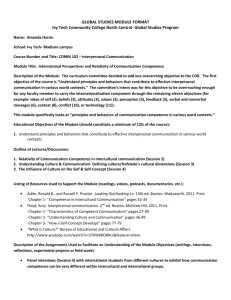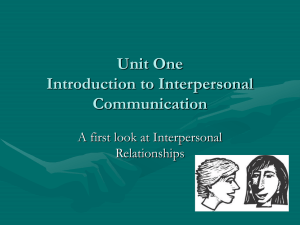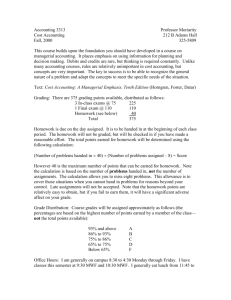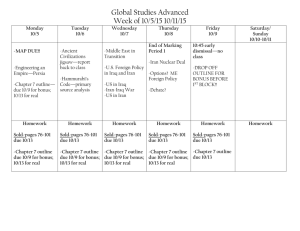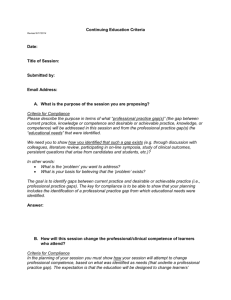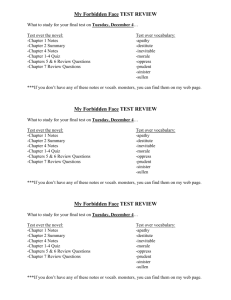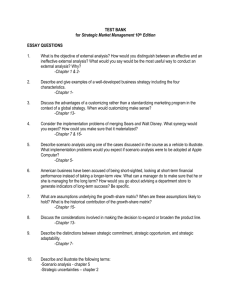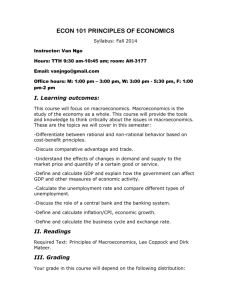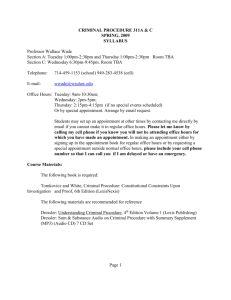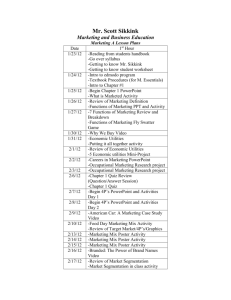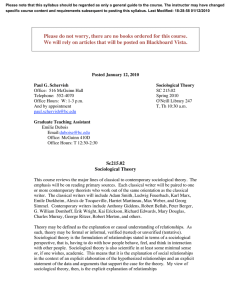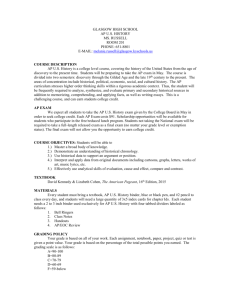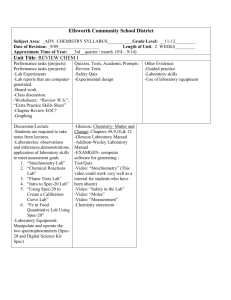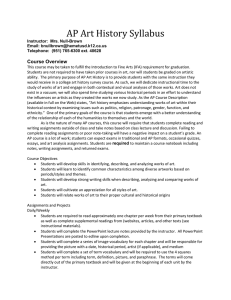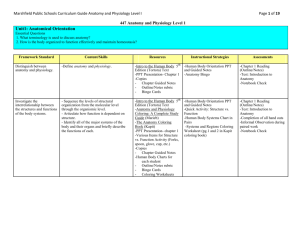Module 3 - Ivy Tech Community College
advertisement
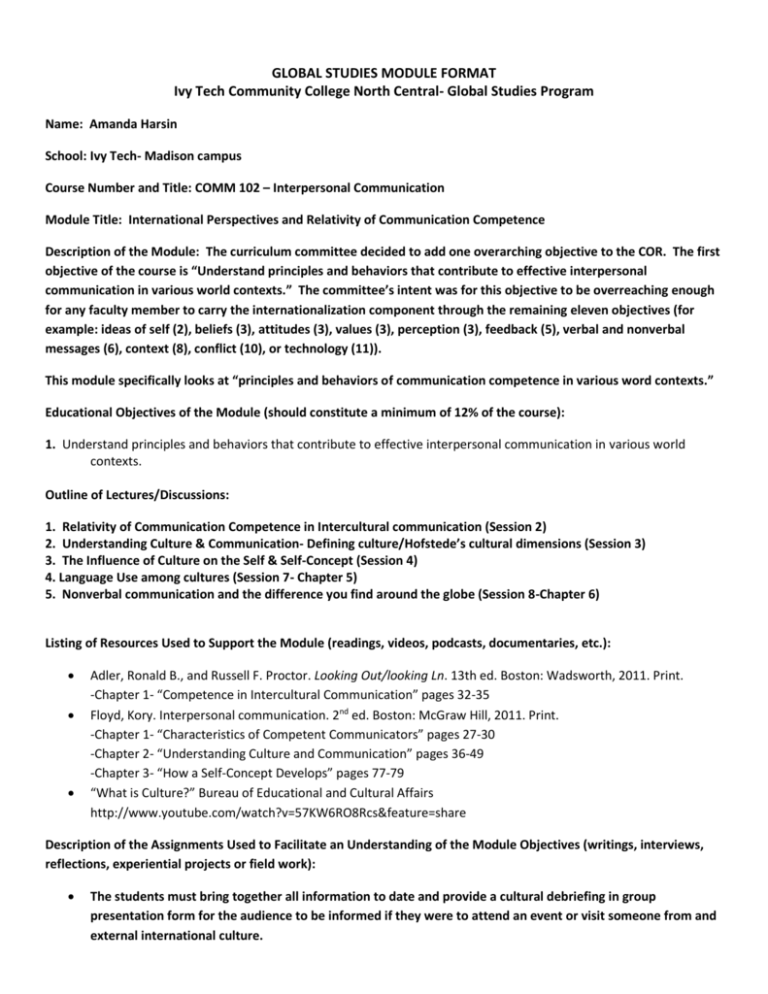
GLOBAL STUDIES MODULE FORMAT Ivy Tech Community College North Central- Global Studies Program Name: Amanda Harsin School: Ivy Tech- Madison campus Course Number and Title: COMM 102 – Interpersonal Communication Module Title: International Perspectives and Relativity of Communication Competence Description of the Module: The curriculum committee decided to add one overarching objective to the COR. The first objective of the course is “Understand principles and behaviors that contribute to effective interpersonal communication in various world contexts.” The committee’s intent was for this objective to be overreaching enough for any faculty member to carry the internationalization component through the remaining eleven objectives (for example: ideas of self (2), beliefs (3), attitudes (3), values (3), perception (3), feedback (5), verbal and nonverbal messages (6), context (8), conflict (10), or technology (11)). This module specifically looks at “principles and behaviors of communication competence in various word contexts.” Educational Objectives of the Module (should constitute a minimum of 12% of the course): 1. Understand principles and behaviors that contribute to effective interpersonal communication in various world contexts. Outline of Lectures/Discussions: 1. Relativity of Communication Competence in Intercultural communication (Session 2) 2. Understanding Culture & Communication- Defining culture/Hofstede’s cultural dimensions (Session 3) 3. The Influence of Culture on the Self & Self-Concept (Session 4) 4. Language Use among cultures (Session 7- Chapter 5) 5. Nonverbal communication and the difference you find around the globe (Session 8-Chapter 6) Listing of Resources Used to Support the Module (readings, videos, podcasts, documentaries, etc.): Adler, Ronald B., and Russell F. Proctor. Looking Out/looking Ln. 13th ed. Boston: Wadsworth, 2011. Print. -Chapter 1- “Competence in Intercultural Communication” pages 32-35 Floyd, Kory. Interpersonal communication. 2nd ed. Boston: McGraw Hill, 2011. Print. -Chapter 1- “Characteristics of Competent Communicators” pages 27-30 -Chapter 2- “Understanding Culture and Communication” pages 36-49 -Chapter 3- “How a Self-Concept Develops” pages 77-79 “What is Culture?” Bureau of Educational and Cultural Affairs http://www.youtube.com/watch?v=57KW6RO8Rcs&feature=share Description of the Assignments Used to Facilitate an Understanding of the Module Objectives (writings, interviews, reflections, experiential projects or field work): The students must bring together all information to date and provide a cultural debriefing in group presentation form for the audience to be informed if they were to attend an event or visit someone from and external international culture. Evaluation/Testing Used to Assess the Comprehension of the Module: A group presentation about a culture/country outside of the United States. Students must pick individual topics within the group’s country or culture that I recommend be from “below the surface” on the cultural iceberg. Resources (Bibliography) used to Develop/implement the Module: Adler, Ronald B., and Russell F. Proctor. Looking Out/looking Ln. 13th ed. Boston: Wadsworth, 2011. Print. Floyd, Kory. Interpersonal communication. 2nd ed. Boston: McGraw Hill, 2011. Print.
